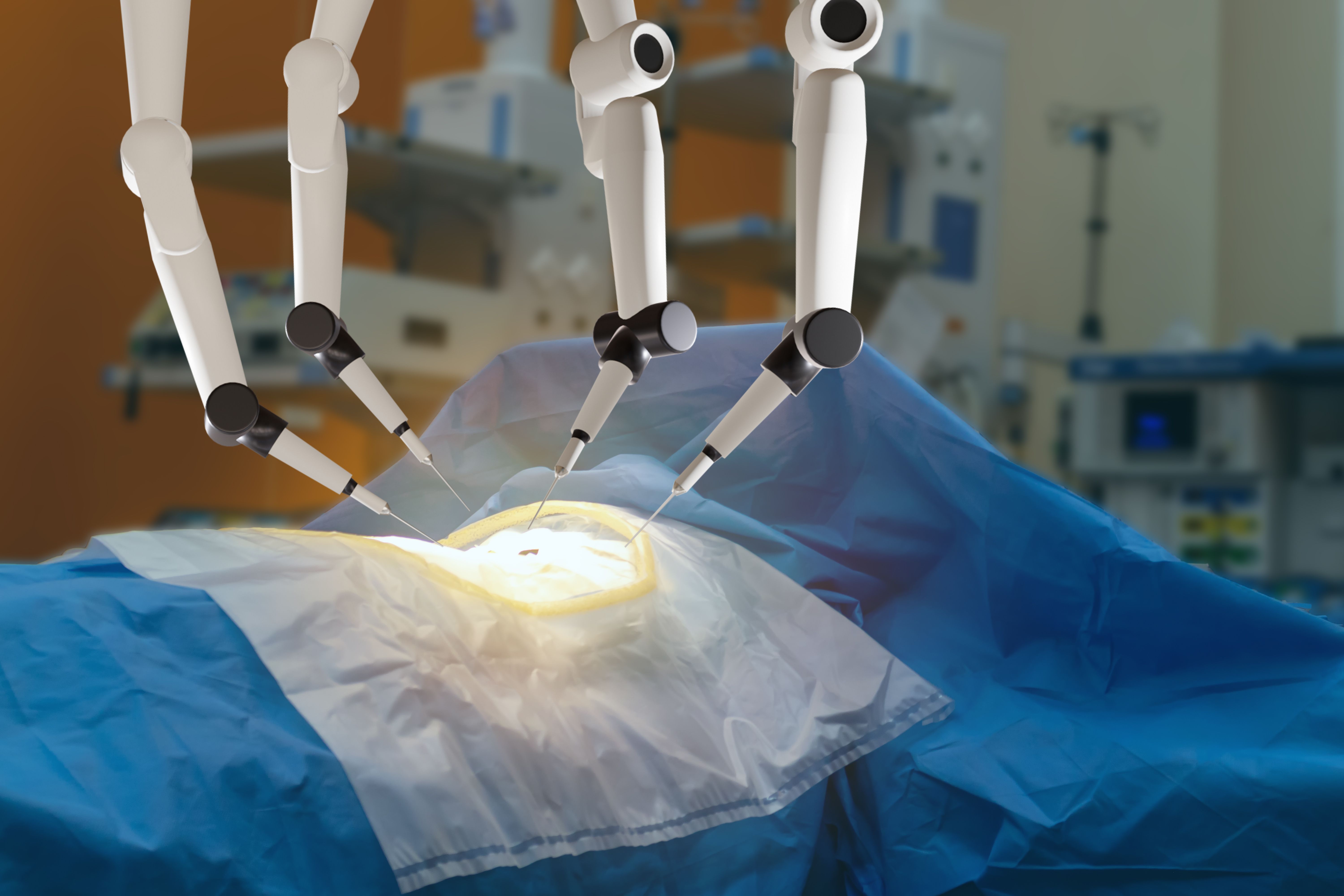- Center on Health Equity & Access
- Clinical
- Health Care Cost
- Health Care Delivery
- Insurance
- Policy
- Technology
- Value-Based Care
Robotic Systems Possess Positive Outcomes, Safety in Colorectal Surgery
Surgery for colorectal cancer has been both positive and challenging when using robotic-assisted surgeries.
Robotic-assisted surgery has been used with positive outcomes in surgery for colorectal cancer (CRC) among other colorectal surgeries, according to a study published in the Journal of Robotic Surgery.1 The safety profile and outcomes can help future clinical practice.
Robotic-assisted surgery is a minimally invasive method of conducting surgeries. Surgery to address CRC has started to use these methods after successful use in other areas of medicine, including laparoscopic and open approaches. The Senhance Robotic System, developed in Durham, North Carolina, by Asensus Surgical,2 is an FDA approved robotic system that can be used for these surgeries. However, data are lacking on its experiences across multiple centers. This study aimed to assess the safety and efficacy of colorectal surgeries using Senhance at 2 centers in Europe.
The TransEnterix European Patient Registry for Robotic-assisted Laparoscopic Procedures in Urology, Abdominal Surgery, Thoracic and Gynecologic surgery was used to extract data to include in the study. The 2 European centers used in this study were the Klaipeda University Hospital in Lithuania and the Evangelisches Hospital in Germany. Patients were included if they had an indication for colorectal surgery and no contraindications for laparoscopic surgery. Patients were excluded if they had life-threatening diseases that could limit the life of the patient to less than a year.
Robotic-assisted surgery is feasible and safe for patients who need colorectal surgery, including resections | Image credit: Monopoly919 - stock.adobe.com

Sigmoid resection, right hemicolectomy, and rectal surgery were the 3 types of colorectal surgeries conducted with robotic assistance. There were 3 robotic arms and 5 trocar placements used generally in all surgeries. The duration of the surgery was recorded in minutes along with the console time, the time that a cockpit surgeon operates through the robotic system, and the docking time, the period between the start and finish of the robot’s docking to the trocars. Adverse events (AEs) and perioperative complications were also documented. Demographic data were collected from all participants.
There were 355 colorectal surgeries that were performed with robotic assistance and included in this study, with sigmoid resections performed in 47.6% of the cases, rectal surgery in 34.7%, and right hemicolectomy in 17.7%. The mean (SD) age of the participants was 64.8 (12) years and 56.9% were women. Relevant comorbidities were found in 37.7% of the participants.
A median (IQR) of 147.2 minutes (124.3-183.0) was found for the duration of surgery whereas the docking time was a median length of 3.4 minutes and the mean (SD) console time was 83.4 minutes (33.6). Reduction in time was found based on caseload. Wesel, with its 192 cases, had a lower median duration of surgery (132 [range, 111.0-168.5] vs 165 [range, 140.0-200.0] minutes) and median docking time (3 [range, 2.0-4.0] vs 4 [range, 2.0-7.0] minutes) compared with Klaipeda, which had 163 cases. However, mean console time was extended in Wesel compared with Klaipeda (90.2 [32.7] vs 77.7 [34.3] minutes). A total of 71.8% of the cases had minimal blood lossage.
There were no mortalities related to the procedure but 2.9% of the cases required conversions. There were 24 intra- and postoperative AEs that were reported, with 1 complication occurring during the surgery. This event was not associated with the robotic parts of the story. Hemorrhage, hernia, postoperative ileus, anastomotic leakage, stenosis, and urinary retention were all AEs reported. Severe AEs made up 5 cases compared with 7 cases of mild severity and 12 cases of moderate severity. A total of 95.8% of the AEs were not related to the robotic system, with only 1 report being judged as possibly related.
The sole limitation to this study was that the Klaipeda center are selective in providing robotic surgery which would narrow the population to those most suited for the procedure and could eliminate patients who were not healthy or who were at greater risk.
The researchers concluded that surgeries using robotic assistance is both safe and feasible when using it for CRC. These insights can help in understanding the future use of robotic surgery in this population.
References
- Samalavicius NE, Karpiciute R, Nausediene V, Willeke F, Hansen OM. Experiences in robotic colorectal surgery: comprehensive insights from a multi-center analysis using the Senhance Robotic System. J Robot Surg. 2024;18:375. doi:10.1007/s11701-024-02136-w
- Senhance Surgical System. Asensus Surgical. 2024. Accessed October 24, 2024. https://www.asensus.com/senhance
